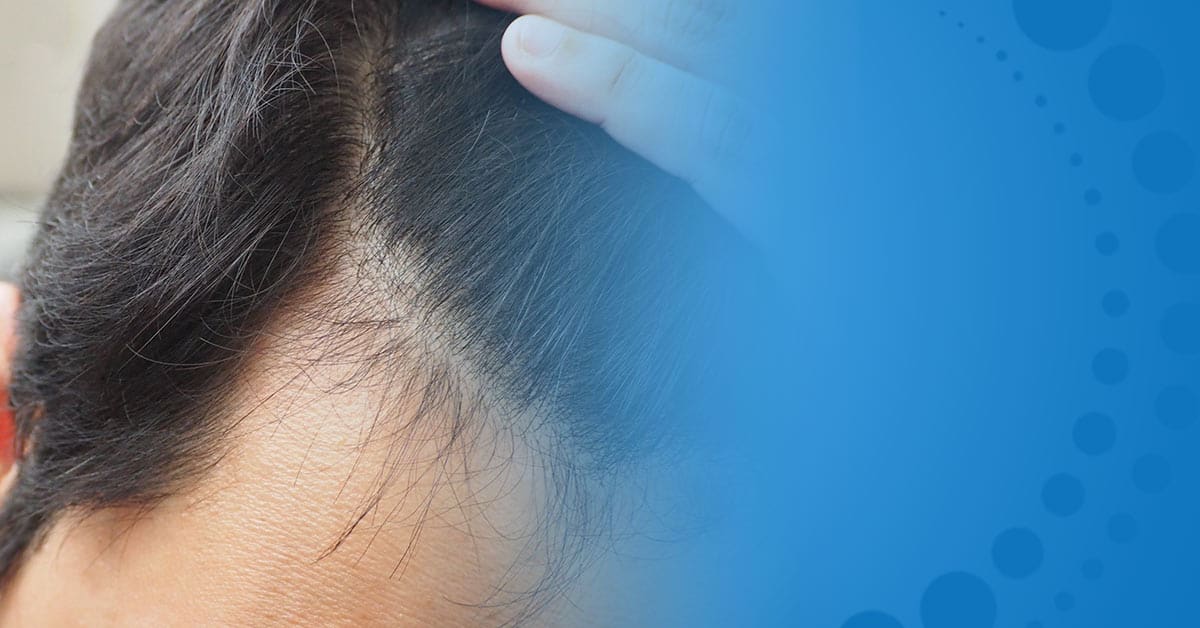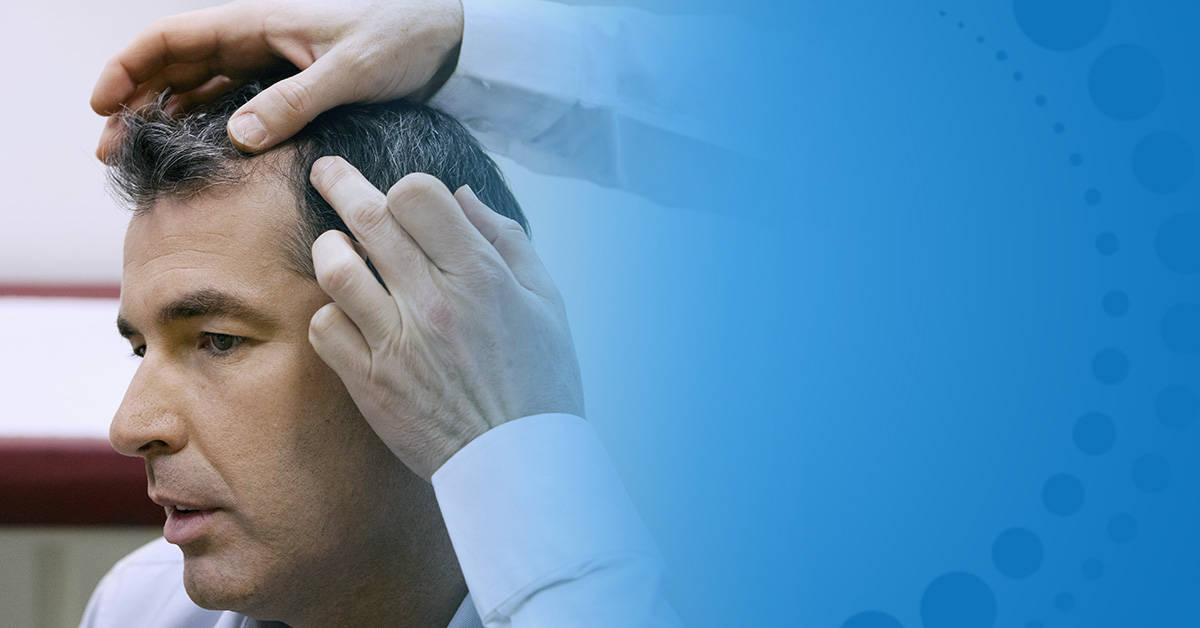Do Vitamin Supplements Prevent Hair Loss?

When you’re on the internet or watching television, the ads are inescapable: “Buy this supplement and your hair will grow lusher, thicker, and stronger.” But are those claims true? A vitamin deficiency can cause hair loss… but can vitamins for hair growth and supplements prevent hair loss, regrow lost hair, or make the hair you have healthier? Despite the ads’ chirpy optimism, the honest – and most accurate – answers to those questions are “maybe” and “it depends.”
What Deficiencies Cause Hair Loss?
So much of our hair’s growth and health rely on nutrition. Eating an unhealthy or unbalanced diet can cause poor hair growth – or even hair loss. Illnesses or conditions that interfere with nutrient absorption also impact our hair’s health.
Some of the deficiencies implicated in hair loss are:
- Vitamin A is a prime requirement for cell growth. This includes hair – which is the fastest growing tissue in the human body. Vitamin A also makes scalp-moisturizing sebum, which is necessary for healthy hair.
- B Vitamins – especially Biotin – are necessary for hair growth. Other B vitamins help create red blood cells, which carry oxygen and nutrients to the scalp.
- Vitamin C is a powerful antioxidant. It protects against free radicals that block hair growth and cause hair to age. Vitamin C is a necessary component of collagen production, and it helps the body absorb iron.
- Vitamin D’s role in hair loss is not well understood… but evidence suggests that a vitamin D deficiency can impact hair follicle health.
- Vitamin E, like vitamin C, is a powerful antioxidant.
- Iron helps red blood cells carry oxygen throughout the body. Anemia (lack of healthy oxygen-carrying red blood cells) is a well-known cause of hair loss – especially in women.
- Zinc aids in tissue growth and repair. It also keeps oil glands around hair follicles working properly.
Other requirements for healthy hair include protein, selenium, niacin, fatty acids, and folic acid.
Which Vitamins Help in Hair Growth?
There is no substitute for a healthy, balanced diet… but if you have a legitimate vitamin deficiency, supplementing that vitamin should be able to help (unless you have a medical issue that prevents proper absorption).
Your physician can help determine if you have any deficiencies and whether you need vitamins for hair growth – whether through diet, supplements, or other treatments. It is critical to take the proper dosage since some supplements can cause hair loss if taken in the wrong quantities.
Can Supplements Cause Hair Loss?
Taking too much of some supplements may cause hair loss… as well as significant health issues. Vitamin A, vitamin E, selenium, iron, and zinc easily become too much of a good thing – resulting in not just hair loss but in multiple toxicities.
It is always wise to consult your physician before embarking on a course of supplements, especially those that can build up in your body and cause serious damage.
Do Hair Vitamins Really Work?
The research on hair growth supplements is mixed at best. Supplements may work if your hair loss is indeed caused by a nutritional deficiency. If your hair loss has another underlying cause, supplements probably won’t make a significant difference.
The wisest course of action is to eat a balanced diet and address any health issues that may be contributing to hair loss.
If Supplements Don’t Work, We’re Here To Help
If supplements or dietary changes haven’t worked for you, Austin Hair Restoration Clinic is here to help. We offer a variety of hair restoration options, including Votesse (a system that combines vitamin and mineral oral supplements and a topical foam), other medications, low-level laser therapy, as well as the minimally invasive ARTAS® Robotic Hair Transplant System – a procedure that produces exceptional results and will get you back to your day-to-day life in just a few days.
Hair loss doesn’t have to be permanent. Contact us today for a free consultation, and let us help restore your hair and your confidence.
Dr. Sanjeev Dubey is an experienced hair restoration and emergency medicine physician in Austin, Texas. He holds a medical degree from the University of Texas Medical Branch (UTMB) and has been practicing medicine for over two decades. His affiliations include Seton Medical Center Austin, Seton Northwest, and various local hospitals.





